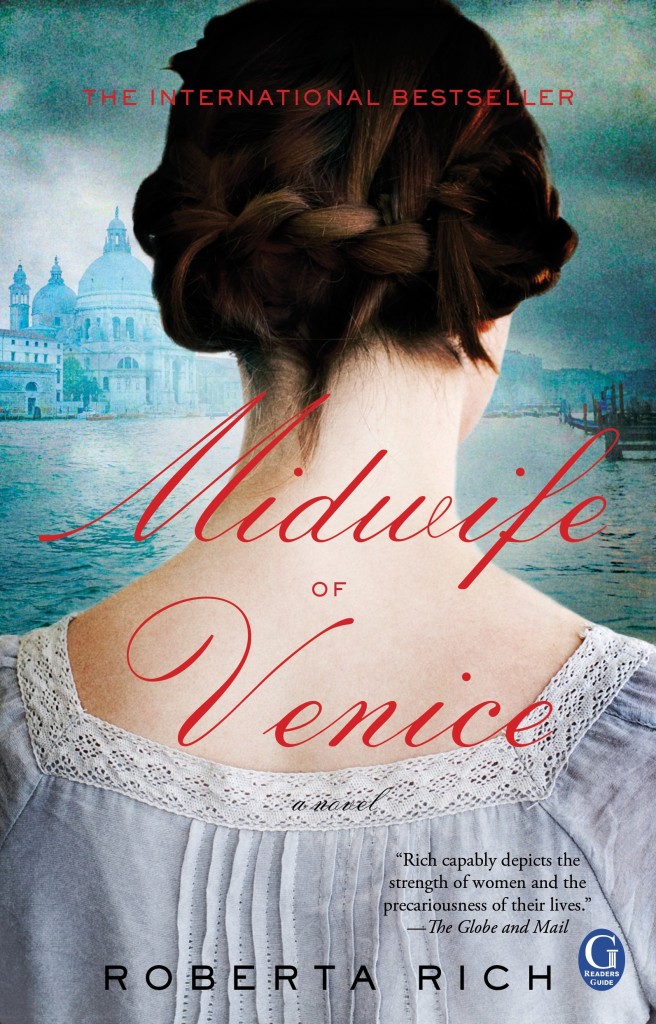A Conversation With Roberta Rich
 Renowned throughout Venice for her gift at coaxing reluctant babies from the their mothers’ wombs, Hannah Levi, a Jewish midwife, is much in demand. But when she receives a summons from a wealthy Gentile count to attend his wife, she is torn about what to do. Does she defy Papal edict that forbids Jews from rendering medical treatment to Gentiles? Or does she try to alleviate the suffering of this unknown woman, and in so doing, earn the money to pay her husband’s ransom? These are the questions raised by “The Midwife of Venice,” the first novel by former lawyer Roberta Rich. Fiction Editor Yona Zeldis McDonough had some questions of her own, and she sat down with author Rich to find out more about birthing practices in the 16th century, the transition from lawyer to novelist and what life was like in the Jewish ghetto of Venice.
Renowned throughout Venice for her gift at coaxing reluctant babies from the their mothers’ wombs, Hannah Levi, a Jewish midwife, is much in demand. But when she receives a summons from a wealthy Gentile count to attend his wife, she is torn about what to do. Does she defy Papal edict that forbids Jews from rendering medical treatment to Gentiles? Or does she try to alleviate the suffering of this unknown woman, and in so doing, earn the money to pay her husband’s ransom? These are the questions raised by “The Midwife of Venice,” the first novel by former lawyer Roberta Rich. Fiction Editor Yona Zeldis McDonough had some questions of her own, and she sat down with author Rich to find out more about birthing practices in the 16th century, the transition from lawyer to novelist and what life was like in the Jewish ghetto of Venice.
What was the inspiration for this novel?
I have a very visual imagination. When I was in the museum in the Venetian Ghetto, I saw two things which ignited some images. The first was a shadai, or good luck amulet. I thought of the high infant mortality rate in those times, not just in the ghetto, of course, but all over 16th century Europe and had the idea for a shadai in the shape of a baby’s hand to hang over the cribs for protection. I also saw a pair of silver spoons resting in the glass display case. These crossed spoons became the inspiration for my heroine midwife to design forceps.
How did you conduct your research for it?
Fortunately, I love to read and do research although I must confess I am not a student of history and never took a history course beyond high school. However, there are a number of fascinating books written about Venice and the history of the Venetian ghetto. I was interested to learn that the ghetto was not only a place to sequester Jews, but it was also a relatively safe haven. In a scene from The Midwife of Venice, Hannah and her sister, Jessica, who has converted to Christianity and becomes a courtesan, accuses Hannah of being a ‘little ghetto mouse’, afraid of life. Hannah responds that the same gates that keep them in the ghetto, keep them safe. In fact, the Venetian government, the Council of Ten was protective of the Jews, valued them for their mercantile connections to the Levant (the Middle East) and for the high taxes and levies they were forced to pay for the ‘privilege’ of living in the ghetto.



